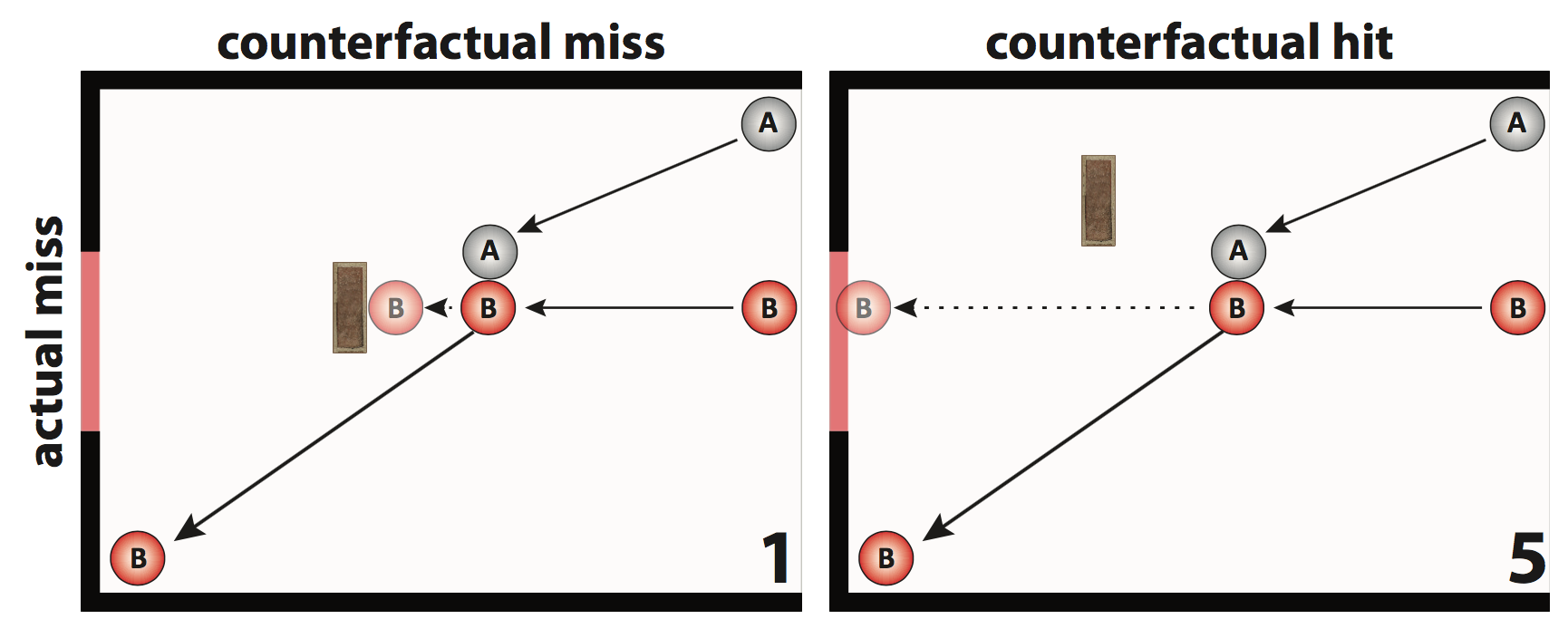
From counterfactual simulation to causal judgment
Abstract
In this paper, we demonstrate that people’s causal judgments are inextricably linked to counterfactuals. In our experiments, participants judge whether one billiard ball A caused another ball B to go through a gate. Our counterfactual simulation model predicts that people arrive at their causal judgments by comparing what actually happened with the result of mentally simulating what would have happened in the relevant counterfactual world. We test our model against actualist theories of causation which aim to explain causation just in terms of what actually happened. Our experimental stimuli contrast cases in which we hold constant what actually happened but vary the counterfactual outcome. In support of our model, we find that participants’ causal judgments differ drastically between such cases. People’s cause and prevention judgments increase with their subjective degree of belief that the counterfactual outcome would have been different from what actually happened.
<< Back to list of publications